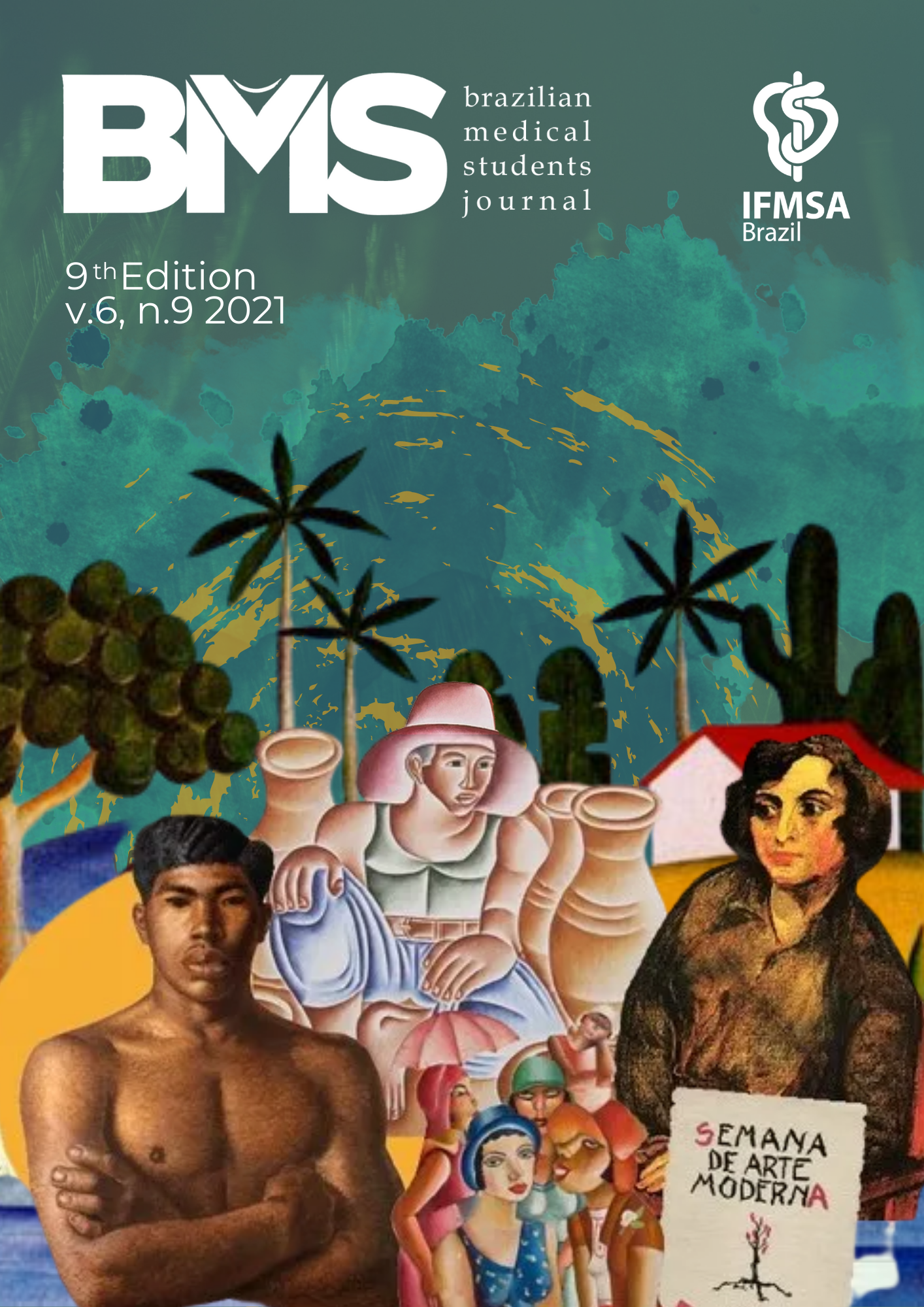Português Português
DOI:
https://doi.org/10.53843/bms.v6i9.261Abstract
The experience report of the event ''I Symposium on neglected tropical diseases'' aims to demonstrate the syllogism used during the project, through the context of the current public health situation in Brazil. During the symposium, tropical diseases were described that, although they have a significant incidence, are commonly neglected. Moreover, it correlated these diseases with the Covid-19 pandemic and with social, physical and mental issues involved in this theme, since it is extremely important to know this situation by Brazilian physicians and academics.
The event took place on April 19-21, 2021, and was held online through the Stream Yard platform with simultaneous transmission on YouTube, in which viewers could ask questions by chat. The diseases addressed were leprosy, onchocerciasis, schistosomes, leishmaniasis, mycetoma and Chagas disease. At the end of each lecture, participants answered a questionnaire, via Google Forms, which was compared with another pre-event form for symposium impact assessment.
The correlation with Covid-19 is extremely important for current medical education, in view of its economic, social, cultural and political impacts, and it is essential that, together with this scenario, strategies are developed that meet the health needs of vulnerable populations in our country. Moreover, the challenges involving this group of diseases are great, because there are multiple factors that make the diagnosis and treatment of neglected tropical diseases an obstacle for the Brazilian health system. Therefore, the event '' I Symposium on neglected tropical diseases'' besides showing a learning space for the academic and personal training of students, becomes a tool for the application of future actions in relation to the management and prevention of these diseases in Brazil.
Metrics
References
Segre M, Ferraz FC. O conceito de saúde. Rev Saúde Pública. 1997;31(5):538–42.
Sugimoto L. Qual é o impacto da Covid-19 nas doenças tropicais negligenciadas? Jornal da Unicamp [Internet]. 16/06/2021 (29/07/2021); https://www.unicamp.br/ ;
Miguel DC, Brioschi MBC, Rosa LB, Minori K, Grazzia N. The impact of COVID-19 on neglected parasitic diseases: what to expect? Trends Parasitol [Internet]. 2021;37(8):694–7. Available from: https://doi.org/10.1016/j.pt.2021.05.003
Fundação Oswaldo Cruz: uma instituição a serviço da vida (homepage na internet). Impactos sociais, econômicos, culturais e políticos da pandemia (acesso em 14 de julho de 2021). Disponível em: https://portal.fiocruz.br
Drugs for Neglected Diseases Initiative (homepage na internet). Drugs for Neglected Diseases Initiative - O que é a Doença de Chagas? (Acesso em 14 de julho de 2021). Disponível em: https://www.dndial.org
Rosário, M. S., De Oliveira, M. L., Lima, C. de A., Vieira, M. A., Carneiro, J. A., & Da Costa, F. M. (2017). Doenças tropicais negligenciadas: caracterização dos indivíduos afetados e sua distribuição espacial. Revista Brasileira de Pesquisa Em Saúde/Brazilian Journal of Health Research, 19(3), 118–127. https://doi.org/10.21722/rbps.v19i3.19574
OMS lança novo roteiro 2021-2030 para as Doenças Tropicais Negligenciadas [Internet]. Sbmt.org.br. 2021 [cited 2021 Jul 29]. Available from: https://www.sbmt.org.br/portal/oms-lanca-novo-roteiro-2021-2030-para-as-doencas-tropicais-negligenciadas/
Downloads
Published
How to Cite
Issue
Section
License
Copyright (c) 2022 Gabrielle, Nayane, Camila, Tomás, Eduarda, Maiana

This work is licensed under a Creative Commons Attribution 4.0 International License.
User licenses define how readers and the general public can use the article without needing other permissions. The Creative Commons public licenses provide a standard set of terms and conditions that creators and other rights holders can use to share original works of authorship and other material subjects to copyright and certain other rights specified in the public license available at https:// creativecommons.org/licenses/by/4.0/deed.pt_BR. Using the 4.0 International Public License, Brazilian Medical Students (BMS) grants the public permission to use published material under specified terms and conditions agreed to by the journal. By exercising the licensed rights, authors accept and agree to abide by the terms and conditions of the Creative Commons Attribution 4.0 International Public License.






